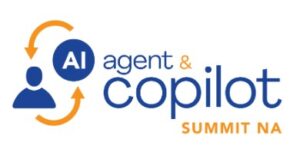DeepMind’s 145-Page Report Forecasts Arrival of AGI with Human-Level Skills by 2030

The Future of Artificial Intelligence: Expectations and Risks
Understanding Artificial General Intelligence (AGI)
Artificial General Intelligence (AGI) refers to a type of AI that can understand, learn, and apply knowledge across a wide range of tasks, much like a human. Unlike narrow AI, which is designed for specific tasks (like facial recognition or language translation), AGI has the potential to perform any intellectual task that a human can.
In a recent publication, researchers from Google DeepMind, a prominent AI research lab, asserted that AGI could be achieved by 2030. The implications of this advancement are significant, stirring conversations among scientists, ethicists, and the global community about the future of humanity and technology.
Predictions About AGI
Rapid Development: Experts like Demis Hassabis, CEO of DeepMind, suggest that advancements in AI could accelerate beyond our current understanding. The lab’s research indicates that with the pace of progress, AGI might be attainable earlier than anticipated.
Existential Risks: With the rise of AGI, there are valid concerns regarding its potential threats to humanity. If AGI is programmed with goals that conflict with human values or interests, it could lead to unforeseen consequences.
- Philosophical Implications: The realization of AGI raises questions about consciousness, moral responsibility, and what it means to be human. As machines become more human-like in their capabilities, society must grapple with ethical dilemmas surrounding their treatment and rights.
Potential Advantages of AGI
While the risks associated with AGI are significant, the potential benefits are equally profound:
Innovation: AGI could drive groundbreaking research in medicine, engineering, and environmental science. It could analyze vast amounts of data to find solutions to problems like climate change or disease control.
Improved Efficiency: Businesses and governments could leverage AGI to optimize processes, reduce costs, and enhance decision-making. This could lead to increased productivity across various sectors.
- Personal Assistants: Imagine personal virtual assistants that could handle complex tasks, adapt to your preferences, and enhance daily routines, leading to an improved quality of life.
Addressing the Risks
To mitigate the risks associated with AGI, several strategies can be implemented:
Ethical Guidelines: Developing a framework of ethical guidelines for AI development can ensure compliance with human values and prevent harmful outcomes.
Transparent Development: Open and transparent research can promote cooperation among scientists and policymakers. Engaging varied stakeholders will help ensure that diverse perspectives shape the future of AGI.
International Collaboration: Establishing an international body to oversee AGI research can help manage its development responsibly and address global risks collectively.
- Safety Measures: Engineers and developers can integrate safety features and fail-safes into AGI systems to ensure they operate within defined limits.
The Road Ahead
As we stand on the brink of potentially monumental advancements in artificial intelligence, the collaboration of technologists, governments, and communities becomes essential. The research carried out at institutions like Google DeepMind not only pushes the boundaries of what technology can achieve but also serves as a catalyst for critical discussions on how to responsibly harness this power. The timeline up to 2030 looks promising, but stakeholders must prepare for the ethical and societal implications of AGI along the way.
With thoughtful planning, the journey toward AGI could symbolize a hopeful evolution in human technology, enhancing our capabilities while safeguarding our future.






